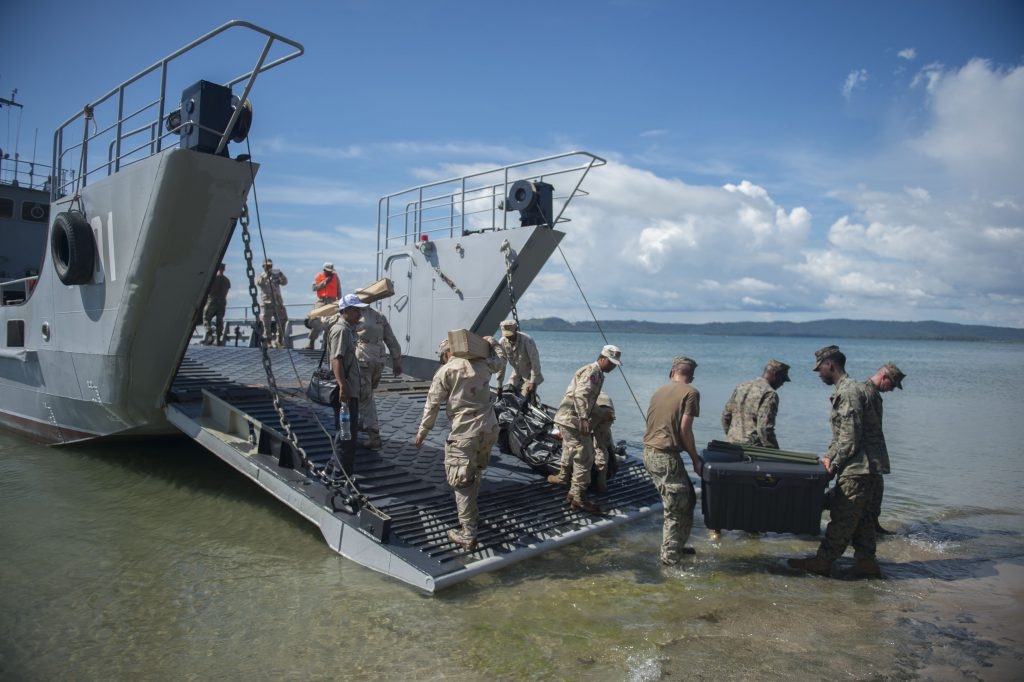In this mailing:
- Judith Bergman: UK: Going Easy on ISIS Terrorists, Hard on Those Who Fought Them?
- Debalina Ghoshal: China's New Naval Base: Cambodia
by Judith Bergman • August 12, 2019 at 5:00 am
While the UK government is seemingly intent on prosecuting those who have fought against ISIS, what has it been doing about the at least 425 returned ISIS terrorists themselves?
Prosecuting around 400 ISIS terrorists means Britain would "lose a generation"? What about the loss of security that these terrorists pose to the rest of British society?
Killing, torturing, raping and abusing Yazidis, Christians and others for sport was something that looked "bright and attractive"?
The law does not appear to apply to ISIS terrorists the same way it applies to those young Britons who went to fight against them. The United Kingdom's moral compass seems to be entirely broken.
The West has mercilessly let down persecuted minorities in the Middle East, while showing great concern for the well-being of returning ISIS terrorists, their children and their spouses. There seems to have been no such concern for the victims of ISIS terrorists, particularly the Christians and Yazidis.
In the Netherlands, the Dutch immigration service has been sending Yazidi asylum seekers back to refugee camps in northern Iraq, and arguing that they have sufficient access to food and other facilities, Dutch media outlet Trouw recently reported. By contrast, in February, Dutch Minister of Justice Ferdinand Grapperhaus said that the Netherlands is "looking into" the option of trying to move Dutch women and children living in refugee camps in Syria to safe areas where they can return to the Netherlands.
by Debalina Ghoshal • August 12, 2019 at 4:00 am
"[Scepticism] has grown louder recently, with the release of satellite images from the European Space Agency showing that the runway for the site's airport is far longer than is required for civilian aircraft" — Andrew Nachemson, Cambodia-based journalist, South China Morning Post, March 5, 2019.
"Over the past two years [Cambodian Prime Minister Hun Sen] has accepted more than $600m (£480m) in loans as part of China's controversial Belt and Road initiative." — Hannah Ellis-Petersen, South-east Asia correspondent, The Guardian, July 22, 2019.
"It appears that there are massive strings attached to these loans. If Cambodia had said no, do you think China would continue its massive investment in Cambodia?" — Sophal Ear, Cambodian political scientist, to The Guardian, July 22, 2019.
Without a change of government in Phnom Penh, brought about by an election that truly reflects public sentiment, China could be given virtually free rein in Cambodia to further its political and military designs on Asia.

A recent Wall Street Journal report claims that China has signed a secret deal with Cambodia that gives the Chinese military access to Cambodia's Ream Naval Base. Washington has expressed worry over Cambodia's move away from democracy and American influence, and its descent into autocratic rule and towards China's orbit. Pictured: U.S. Marines and Royal Cambodian Navy sailors participate in the multinational "CARAT Cambodia 2016" exercise near Ream Naval Base, November 2, 2016. (U.S. Marine Corps photo by Chief Petty Officer Lowell Whitman)
China's efforts to establish regional hegemony were highlighted recently by a Wall Street Journal report claiming that Beijing signed a secret deal in the spring with Phnom Penh, giving the Chinese armed forces access to Cambodia's Ream Naval Base on the Gulf of Thailand, "not far from a large airport now being constructed by a Chinese company."
Although the report was vehemently denied by Cambodian Prime Minister Hun Sen, who called it "the worst-ever made up news against Cambodia," Washington has cause to take it seriously. The United States is aware of China's attempts to strengthen its strategic foothold in Southeast Asia in general and the South China Sea in particular. Washington also has expressed worry over Cambodia's move away from democracy and American influence, on the one hand, and its descent into autocratic rule and towards China's orbit on the other.
|
|
No comments:
Post a Comment